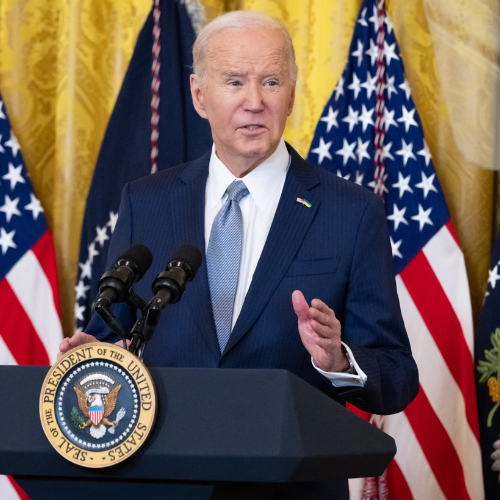The United States government has introduced powerful measures to ensure that sanctions placed on Russia cannot easily be undone by future administrations. These new actions are designed to stop attempts to weaken penalties targeting key parts of the country’s economy, military, and defense industries.
On Wednesday, the US Treasury unveiled steps to strengthen these sanctions, with a focus on entities that support Russia’s military operations. About 100 companies and organizations, including some involved in weapons manufacturing and major financial services, have been added to a special sanctions list. This list is now subject to a unique rule: Congress must review and approve any attempts to remove sanctions against these entities. Lawmakers are given 30 days to act if there is a proposal to lift these restrictions.
The list includes companies from critical sectors like finance, energy, and defense. For example, the Tactical Missiles Corporation, which produces weapons for Russia’s military, and the Moscow Exchange, a major financial hub, are now under this stricter regime. This rule prevents any easy rollback of penalties, even if a new administration tries to soften its stance on Russia.
Protecting Sanctions from Future Changes
The Biden administration wants to ensure these penalties remain effective, even if political leadership changes in the US. The measures also include “mandatory secondary sanctions.” These are penalties placed on businesses or individuals outside the US who help Russian entities on the sanctions list. This means that even companies in other countries could face consequences for helping bypass US sanctions.
New US Sanctions Hammer Russian Oil Trade with China and India
These rules are part of a larger law passed in 2017 called the Countering America’s Adversaries Through Sanctions Act (CAATSA). CAATSA was originally created to address concerns about Russian interference in US elections. The law gives Congress the power to stop the White House from weakening sanctions. If both the Senate and the House of Representatives pass a “measure of disapproval,” they can block any attempt to remove these restrictions.
According to the Treasury, this is a critical step in cutting off Russia’s ability to access materials and funds needed to support its war in Ukraine. A senior Treasury official warned businesses and countries worldwide not to risk getting involved with anyone on the sanctions list, stating that the US is watching closely.
Targeting Evasion Efforts and New Listings
The US is also cracking down on countries and companies trying to help the country work around these sanctions. For example, the Treasury announced sanctions on Keremet Bank, a financial institution in Kyrgyzstan. The bank has been linked to a Russian billionaire with ties to the Russian government. US officials said this bank was being used as a hub to help the country avoid sanctions and continue trading.
Biden Administration Hits Indian Firms for Violating Russian Trade Sanctions
Additional actions were taken against 15 more companies and one individual who were setting up systems to help Russia buy and sell goods in secret. These “regional clearing platforms” were operating in Russia and China, creating ways to trade sanctioned items without using traditional payment methods like cash. This is part of an effort to block them from finding new ways to fund its war effort.
The Treasury emphasized that these actions were meant to stop the Kremlin from obtaining the materials it needs to build weapons. This step, they said, sends a strong warning to anyone considering working with Russian entities to avoid these penalties.
The US also noted that European allies are closely reviewing the sanctions to understand how they would hold up if a future US administration tried to roll them back. By making these restrictions more difficult to remove, the Biden administration aims to ensure long-term consequences for Russia’s actions in Ukraine.
These measures highlight a strong commitment to blocking Russia’s ability to finance and sustain its military activities. They also put the world on notice: any effort to bypass these sanctions will come with serious consequences.


